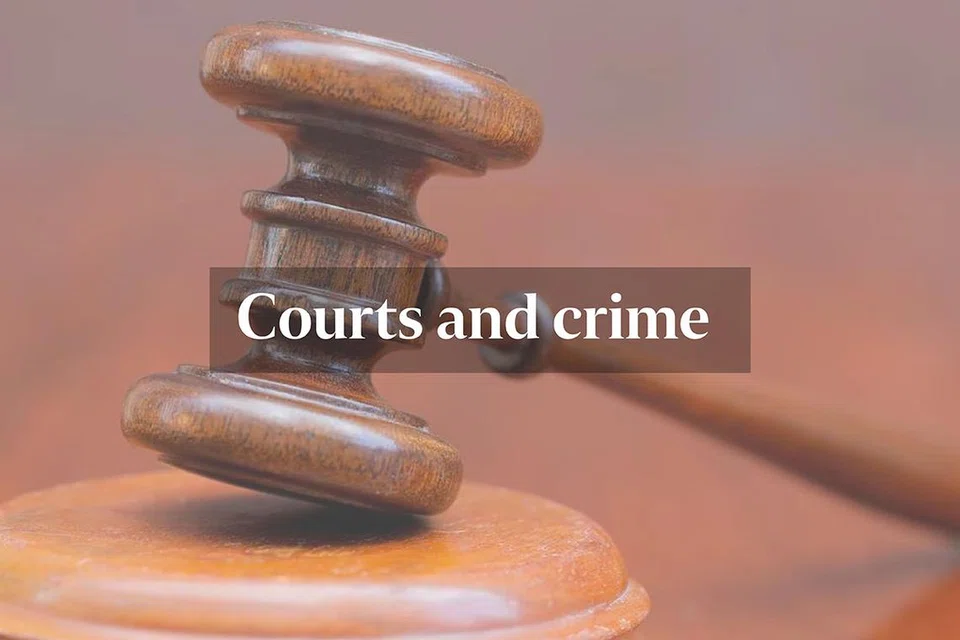Woman who stole $5.7m worth of crypto gets 6 weeks’ jail for disobeying civil court order
During investigations, the police seized items that Ho had bought with proceeds of her crimes. They include Louis Vuitton luxury goods and a Mercedes Benz AMG A45.
Feb 03, 2025
SINGAPORE - A woman who cheated a company out of US$4.2 million (S$5.7 million) worth of cryptocurrency was ordered by a civil court not to use the funds.
But Ho Kai Xin disobeyed the court orders issued in October 2022 and spent close to $840,000 on payments for a freehold penthouse and on Louis Vuitton luxury goods from November to December that year.
For flouting the High Court orders, the 32-year-old woman was handed six weeks’ jail for contempt of court on Jan 27.
Ho currently faces both civil and criminal court proceedings over the stolen crypto. She had earlier pleaded guilty to criminal charges and is awaiting sentencing by a district court.
The six-week jail term arose out of a High Court civil case that the company, ByBit Fintech,
filed against Ho to recover the stolen cryptocurrency.
From June 2022, Ho used the stolen monies to live a lavish lifestyle.
In October that year, the company obtained court orders to freeze her assets, but Ho breached the injunctions by continuing to spend the stolen funds.
ByBit is a Seychellois company which owns and operates a cryptocurrency exchange of the same name.
Ho was employed by WeChain Fintech, which provided payroll services for ByBit.
She owned four electronic wallet addresses, each on different crypto platforms, and six bank accounts.
Ho was the only person responsible for maintaining spreadsheets which contained details of the salaries that were to be paid to 800 to 900 ByBit employees.
ByBit paid its employees in both fiat currencies and in cryptocurrency.
Crypto payment was made primarily in Tether, also known as USDT, a stablecoin with its value pegged to the US dollar.
Each month, Ho would update the spreadsheets according to instructions that she received from various parties within ByBit.
The spreadsheet for crypto payment contained each employee’s designated wallet address.
Ho would insert fraudulent rows of payment into the spreadsheet, for payment to be made to her wallet addresses.
She inserted the names of ByBit’s employees together with her wallet addresses, to deceive the company’s finance department into believing that the stated payments were owed to the named employees.
These employees were not aware that their names were used for this purpose.
Ho would send the spreadsheets to her supervisor for approval. But the supervisor typically approved the spreadsheets without checking the accuracy of the contents.
After the spreadsheets are approved, Ho would send the files to Wechain’s finance department.
For the file involving payments by crypto, Ho would redact information that could lead to the identification of each employee.
The redacted files would then be sent to ByBit, which paid out the sums accordingly.
Ho would convert some of the USDT she received into fiat currency, before transferring the monies into her bank accounts.
She would then move these monies to her other bank accounts, or use the money to buy luxury items for herself.
From May 31, 2022 to Aug 31 that year, ByBit made a total of eight transfers to Ho’s wallets, which amounted to 4.2 million USDT.
Apart from stealing crypto, Ho also amended the spreadsheet to reflect bogus payments in fiat currencies, causing another $117,238.46 to be paid to her bank accounts.
Her actions first came to light on Sept 7, 2022, after a finance director in Wechain noticed the unusually large crypto payments in the spreadsheet.
While internal investigations were ongoing, Ho amended one digit in each of the wallet addresses for the fraudulent transactions.
The changes to the wallet addresses were discovered on Oct 3, 2022.
Asked to explain herself the next day, Ho pinned the blame on a fictitious cousin, who she claimed was the owner of the four wallets.
Ho ceased contact with ByBit and Wechain after this meeting.
She cancelled her Build-To-Order HDB flat and placed a down payment on a $3.7 million freehold penthouse, purchased a Mercedes-Benz AMG A45, and bought multiple items from Louis Vuitton.
After she was sued by ByBit, she filed an affidavit falsely stating that the four wallets were owned by her fictitious cousin, whom she named as “Jason Teo”.
On Feb 28, 2023, ByBit lodged a police report against Ho. She repeated the same lie about her cousin when questioned by the police.
In July 2023, the High Court found in favour of ByBit.
ByBit has recovered about 1.17 million USDT from her electronic wallets and $141,787.11 from one of her bank accounts.
She has not made any offer to repay the remaining amount.
In February 2024, Ho was handed 44
criminal charges for cheating, money laundering and giving false information to the police.
She pleaded guilty on Jan 16, 2025 to 14 charges. The remaining charges will be considered during sentencing.
Prosecutors said a total of 140 man-hours were spent on identifying “Jason Teo” before the police realised that he did not exist.
The police also spent time and financial resources on specialised third-party services to trace the flow of crypto funds.
The criminal case has been fixed for mitigation and sentencing on Feb 20.
Meanwhile, ByBit brought proceedings against Ho to punish her for civil contempt over five transactions she made after the court ordered her assets to be frozen.
On Jan 27, ByBit’s lawyer, Mr Gerard Quek from PDLegal sought nine months’ jail, to be served consecutively to any jail term imposed in the criminal case.
Ho, who was not represented by a lawyer, sought no more than three months’ jail, to be served concurrently with any jail term imposed in the criminal case.
Justice Philip Jeyaretnam agreed with Mr Quek that the jurisdiction to punish for civil contempt is distinct from the power to sentence for the original criminal conduct of cheating.
However, the High Court judge said there is considerable overlap between Ho’s acts of concealment that may be considered by the court in the criminal case and the acts of disobedience.
Justice Jeyaretnam accepted that she has begun to accept responsibility for her actions, albeit belatedly.
He added that it was for the criminal court to decide whether the sentence for civil contempt should run concurrently or consecutively with any jail term imposed in the criminal case.






















